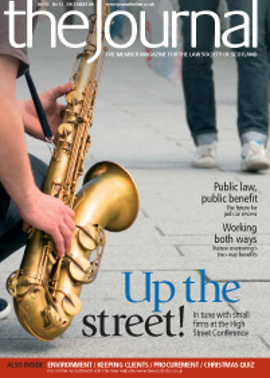Under a cloud

The World Anti-Doping Agency (“WADA”) is the Olympic/international governmental body that leads and co-ordinates the global doping movement. The WADA Code, which came into force on 1 January 2004, is widely adopted and seeks to harmonise and standardise the approach to anti-doping, setting a framework for necessary policies, rules, and regulations. Five international standards, including testing for doping offences and banned substances, support the code.
The International Convention against Doping in Sport (of which over 100 of UNESCO’s 193 member states are now signatories) stipulates that governments should withhold financial support from sporting federations and associations unless they adopt and apply the code. The most significant document for sports people is the List of Prohibited Substances and Methods published each January by WADA.
The Prohibited List is the international standard as regards banned substances for both “in” and “out-of” competition testing. Some substances are banned only in particular sports.
Why testosterone?
Testosterone is a steroid produced endogenously in both male and females. Epitestosterone is testosterone’s natural balancing hormone. Most people have a T/E ratio of around 1:1, although higher naturally occurring T/E ratios have been commonly reported. Testosterone levels can increase after steroid abuse, whereas the level of epitestosterone remains constant, serving as a reference point. WADA’s code stipulates that a T/E ratio greater than 4:1 may be indicative of doping and require explanation, meaning that the athlete is suspended on receiving an adverse analytical finding (“AAF”) on the first test of their sample. Certain medical conditions can significantly increase T/E ratios, as can acute alcohol abuse. Interestingly, from 1983 until the coming into force of the code in 2004, the IOC did not report an AAF unless athletes’ ratios were greater than 6:1.
Following an AAF, further testing can be done with isotope ratio mass spectrometry (“IRMS”) to show if the elevated T/E ratio is due to steroid administration. Where the test does not show steroid administration, the result is not a “not guilty” and used to clear the sportsperson; instead the result is “inconclusive of administration” and the accused must then lead evidence to attempt to explain his or her elevated level.
The Turnbull and MacLeod cases
Gareth Turnbull, a middle-distance runner from Ireland, was tested in 2005 after a night of heavy drinking and registered a T/E ratio of 5.82, resulting in an AAF. He was provisionally suspended. Following further testing, ingathering of medical evidence and a hearing in front of a doping panel, his provisional suspension was lifted. The panel decided that, as a matter of probability, the raised testosterone level was a temporary “spike” induced by alcohol and so not indicative of steroid abuse. To clear his name, Turnbull led evidence from various witnesses including coaches and fellow athletes for character evidence; friends who confirmed that he had been out drinking the night before; and leading medical experts who spoke to papers and studies regarding the link between alcohol consumption and “spikes” in T/E ratios. Mr Turnbull reportedly spent in excess of £100,000 to clear his name.
Scott MacLeod, lock for Scotland and Welsh rugby side Llanelli Scarlets, recently faced a similar investigation, provisional suspension and then fight to clear his name. In MacLeod’s case, his secondary sample was analysed for the presence of alcohol, MacLeod claiming that his elevated reading was a result of an impromptu celebration after receiving news he was to become a father, the night before the sample was given. This explanation was ultimately accepted and UK Sport dropped the proceedings.
Despite accepting that alcohol can act to “spike” T/E ratios, WADA has indicated that it may, after a review, still take MacLeod’s case before the Court of Arbitration for Sport.
Calls for change
These cases pose a number of questions about the treatment of athletes under the WADA regime for allegations involving naturally occurring substances. WADA stipulates and enforces rigid procedures (which must be applied by international federations and governing bodies, who have no choice but to follow the code and against whom no criticism is made here), and once an athlete is provisionally suspended, the “doping” stigma attaches to the athlete and is almost unshakable.
For naturally occurring substances, would it not be fairer to suspend after the result of the second test is known? Due to alcohol’s documented effect on T/E ratios, should samples not also be routinely analysed for alcohol? Is it not in sports’ interests to know if, and to what extent, alcohol is being ingested by sportspeople? Given that test subjects have to declare on their testing forms all medications taken, should the form be revised to include alcohol? Whilst Scott MacLeod will hope that his case is at an end, scrutiny of the questions raised by these cases will continue.
In this issue
- Sale and purchase agreements – how to avoid the unexpected
- 2008: a year of change; 2009: a year for progress
- Law: it's the business
- Business makeover
- Training plus
- Registers update
- Public service
- One of a kind
- Brussels sprouts more eco-law
- Test yourself
- Trainees try again
- Terms of Business Guidance Note (November 2008)
- Guideline: Scanning and Archiving Documents (November 2008)
- Client, or customer?
- The changing faces of fraud
- Business advice roundup
- The year that crunched
- The anatomy of law firm failures
- Chapter and verse
- The power of agreement
- Under a cloud
- Scottish Solicitors' Discipline Tribunal
- ECJ in the fast lane
- Website review
- Book reviews
- Tender trouble
- Opportunity beckons, Smart tells symposium
- Public money or bust?






